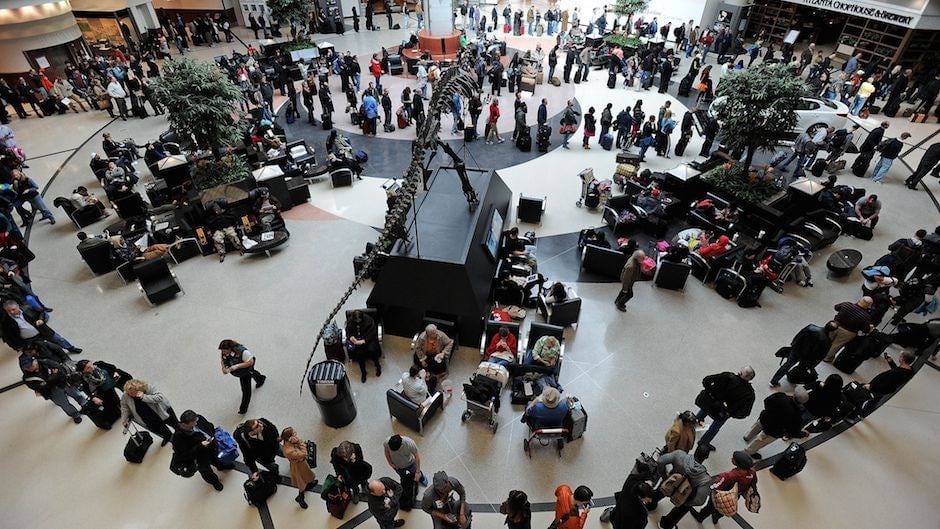Why Delta is fighting a solution to the chaos at the busiest airport in the world
As any traveller who has passed through Hartsfield-Jackson Atlanta International Airport knows, it is pretty much always packed.


As any traveller who has passed through Hartsfield-Jackson Atlanta International Airport knows, it is pretty much always packed.
Today and the next few days will likely be exceptionally so, even for the world’s busiest airport by passengers and second busiest by aircraft movements; Thanksgiving travel volume this year is expected to be at its highest since 2007, and Atlanta’s is projected to be the busiest airport in the US, with around 7.5 million travelers flying in and out over the holiday period.
So you’d think a proposal for a tiny airport about 40 miles from downtown—with a single commercial runway that would likely handle four commercial flights a day—wouldn’t be too much of a threat.
But Delta, the main airline at Hartsfield-Jackson, doesn’t see it that way. Paulding Northwest Atlanta Airport, a general aviation airport on city-owned land, may soon become a commercial airport, and Delta has fought the plan at every step.
The US Department of Transportation last month said it was looking into a complaint by local county commissioners and a private group, Propeller Investments, that’s spearheading the development, that Delta used “unfair and deceptive practices” to block the new airport. A spokesman for Delta said the charge is unfounded. Propeller Investments declined comment.
The Federal Aviation Authority cleared the way for the new airport known as “Silver Comet Field” with an environmental study earlier this month, the last measure needed before the agency makes a final decision on whether it can become a reality.
Delta dominates Hartsfield-Jackson, accounting for about 78% of the airport’s passenger traffic (paywall), and the airline argues that even if it starts small, Silver Comet Field threatens Atlanta’s aviation hub. The worry, as Delta senior vice president Holden Shannon wrote in the Atlanta-Journal Constitution, is that Silver Comet could quickly expand, and threaten the existing airport’s business.
Delta’s concerns are well-founded, argued Vikas Bajaj of the New York Times last year: “Airlines know that competition from even small airports can hurt them, because smaller airlines try to offer service on routes that currently have the highest fares,” he wrote. “They also fear that if customers get a taste of lower fares, they might demand that smaller airports be expanded.”
The low-cost airline Allegiant Air is indeed interested in setting up shop in the second airport, Jessica Wheeler, a spokesperson for Allegiant, confirmed to Quartz. As a smaller airline, Allegiant isn’t after the competitive spots at airports like Hartsfield-Jackson or JFK, Wheeler said; that isn’t the airline’s business model. “Our network is built upon underserved routes and underserved airports,” she said.
The city of Atlanta is the largest metro area served by just a single commercial airport in the US, and Delta is far from thrilled about the possible competition, especially after the airline has made a considerable investment in Hartsfield-Jackson, building a $1.4-billion terminal for international travelers that includes more boarding gates, a larger concourse, and more parking. The terminal is part of a $6-billion renovation plan partly funded by the federal Department of Transportation and the FAA.
It may not be much consolation for those crammed into the airport today, but what makes Hartsfield-Jackson so hectic on days like this is also what makes it a success, Delta argues. As a major international and domestic transit hub, Trebor Banstetter, a spokesman for Delta, tells Quartz, the concentration of flights at one airport makes it a potent driver of Atlanta’s economy. And, Banstetter says, splitting up air traffic across multiple airports would dilute that effect.